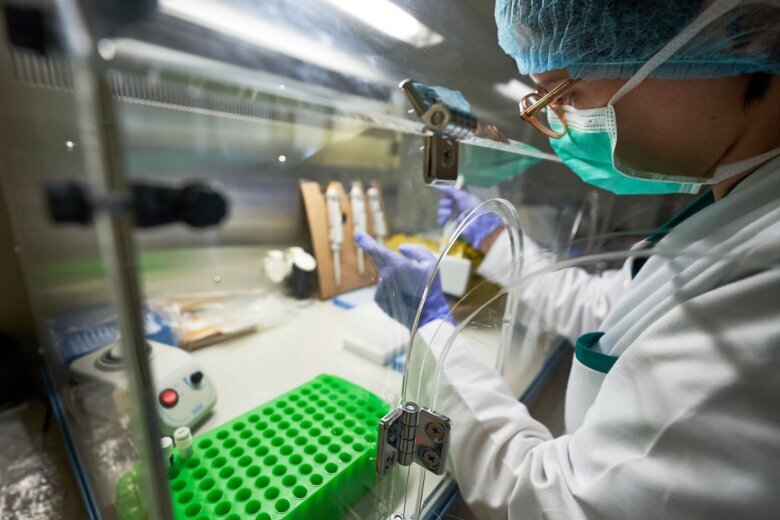
(CNN) — Although not a new phenomenon, health misinformation became even more widespread during the Covid-19 pandemic. A new poll from KFF finds that many Americans still encounter misinformation often and don’t know whether to believe it.
Just over 2,000 adults took part in the survey, which was conducted between May 23 and June 12. Participants were asked about 10 false health claims related to Covid-19, reproductive health and gun violence.
At least 4 in 10 people said they had heard each statement, the report found.
When presented with the statement “More people have died from the Covid-19 vaccines than have died from the Covid-19 virus,” 47% labeled it as definitely false. But about 20% of respondents said it was definitely or probably true.
As for reproductive health, only 30% of respondents said the statement “Sex education that includes information about contraception and birth control increases the likelihood that teens will be sexually active” is definitely false.
Looking at gun violence, only 22% said that the statement “People who have firearms at home are less likely to be killed by a gun than people who do not have a firearm” is definitely false.
Relatively few people said that any of the false claims were “definitely true,” the study authors found. However, at the same time, roughly half to three-quarters of the participants weren’t exactly certain whether each of the claims was true, describing them as only “probably true” or “probably false.”
The report also asked respondents where they heard or read misinformation on the health topics and whom they trusted the most when that information was disseminated.
Eighty-one percent of respondents said they would put at least a little trust in health information reported by local TV news stations, followed by national network news, such as ABC, CBS or NBC, at 72%; local newspapers at 71%; and online news aggregators such as Apple, Yahoo or Google News at 64%.
People who relied on Newsmax, OANN, Fox News or social media for their health information were more likely to have heard at least one of the five false Covid-19 claims in the survey.
About a quarter of the participants (24%) said they used social media at least weekly to “find health information or advice.” This group included mostly Hispanic and Black people, as well as people in low-income households.
Of the people who used the social news aggregation and discussion site Reddit every week, 1 in 6 say they would have a lot of trust in the health information they found there. Weekly TikTok, YouTube and Twitter users also expressed a lot of trust in the health information they see on those platforms.
“Adults who frequently use social media to find health information and advice are more likely to believe that certain false statements about COVID-19 and reproductive health are definitely or probably true,” the report authors wrote.
Of all the information sources asked about in the survey, many people said they trust their doctors the most, with 93% of respondents saying they trust them for “at least a fair amount” of health information and recommendations.
US Surgeon General Dr. Vivek Murthy has called health misinformation “a serious threat to public health” in a 22-page advisory that urges individuals to take responsibility to limit the spread of misinformation.
“Health misinformation is a serious threat to public health. It can cause confusion, sow mistrust, harm people’s health, and undermine public health efforts. Limiting the spread of health misinformation is a moral and civic imperative that will require a whole-of-society effort,” he said.
Misinformation can take the form of things like comical memes circulating online, misleading graphics or cherry-picked statistics.
In 2021, the US Department of Health and Human Services published a Community Toolkit on health misinformation that provides guidance for people who see or hear health-related content that they aren’t sure about.
The agency advises checking with the US Centers for Disease Control and Prevention or your local public health department to see whether there might be any truth to the claim. You can also ask your health care provider if they have more information.
Search online to see if the claim has been verified by a credible source such as government agencies or peer-reviewed medical journals.
If the information is on a website, check the “About Us” page to learn more about whether it might be credible,
At the end of the day, the HHS says, if you aren’t sure about content you see online, do not share it with others.
The-CNN-Wire
™ & © 2023 Cable News Network, Inc., a Warner Bros. Discovery Company. All rights reserved.







